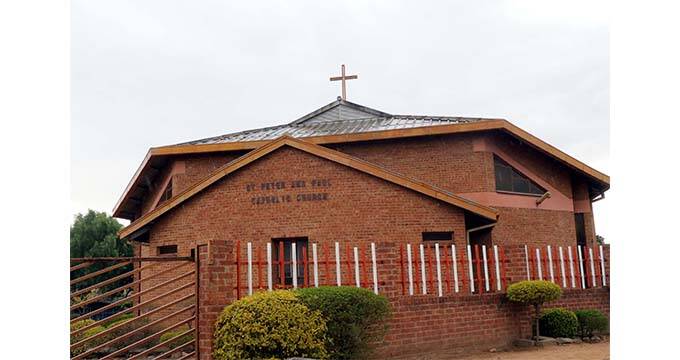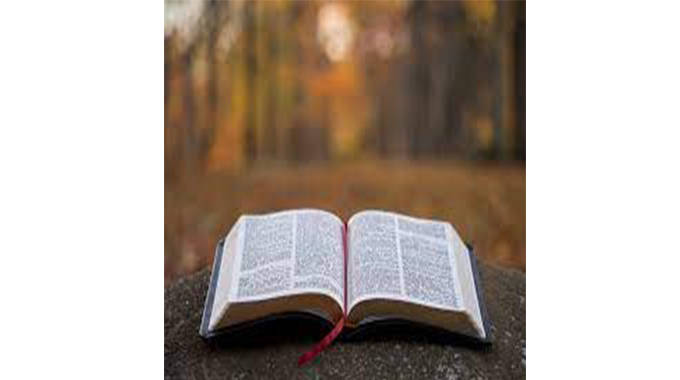The Chronicle
Leonard Ncube, Victoria Falls Reporter
“COME, follow me and I will make you fishers of men.” This was Jesus’ message to fishermen (Mathew 4:19) who became his first set of the 12 Apostles.
Brothers Simon Peter and Andrew on the one side, and John and James on the other immediately left their nets and followed him as they responded to the vocation, from the Latin word “vocare” meaning “to call”.
The church has continued with the same gospel with men and women who dedicate their lives to fishing men into the God’s Kingdom.
Churches refer to the Man of God with different names rooted in their doctrines. In some churches they are called pastors, preachers, prophets or even simply Man of God. The bottom line is that they all do or attempt to do the work of God; preaching and evangelising.
Just like how the Biblical prophets were called by God; men and women of our time continue to respond to the calling to a life of total dedication to God.
In the Catholic Church, they are called reverend Priests or Reverend Deacons.
Priesthood or Holy Orders is one of the Seven Sacraments of the Catholic Church which are; Baptism, Confirmation, Eucharist, Penance, Anointing of the Sick, Matrimony or Marriage and Holy Orders.
In the Catholic Church there are also men and women who are called to a life of total self- surrender referred to as Religious Nuns or Religious Sisters and Religious Brothers and these are known as Men and Women Religious. These are not in Holy Orders, even though some Religious Men embrace Holy Orders.
Men and women leave their parents and families to dedicate their lives to a life of celibacy to serve God either in the Holy Orders or in Religious life. Both those in Holy Orders and those in Religious Life are called to a life of celibacy and chastity in the Catholic Church. Some Religious men also receive Holy Orders.
Celibacy is a state of abstaining from marriage and sexual or conjugal relations, or simply put, a practice of not having sex and also embracing a life of chastity which refers to maintaining oneself pure in body, mind, heart and soul.
In the Catholic Church those in Holy Orders and those in Religious Life embrace not just Celibacy but also “Chastity,” which means purity of body, mind, heart and soul.
 Catholic Church
Catholic ChurchCelibacy has been interpreted differently in social and religious circles. Those that choose celibacy know that it means they remain unmarried and without sexual relationships and keep themselves pure for religious reasons, so that they may firstly: Worthily Handle Holy Mysteries of God in purity and secondly: that they may be totally available to the work of God.
The term is applied only to those who made a sacred vow to it, like Priests and Religious in the Catholic Church. Jesus lived a life of celibacy and chastity. The Bible talks about celibacy and chastity in Mathew 19:11-12 and 1 Corinthians 7:1-40.
Some Deacons, known as Permanent Deacons in the Catholic Church do marry.
Saturday Chronicle spoke to the Bishop of the Catholic Diocese of Hwange, Right Reverend Raphael M. Mabuza Ncube after an ordination ceremony for three deacons Revs; Brian Dube, Paul Praise Muunga and Maurice Pisani Nyoni recently, to explain the true meaning of priesthood and certain rituals that are performed as part of the ordination process.
There are three degrees of Holy Orders, namely: Diaconate, Presbyterate (priest) and Episcopate (Bishop) in the Catholic realm.
Episcopate, Presbyterate and Diaconate are all Holy Orders but diaconate is the lowest. A deacon can’t celebrate Holy Mass or anoint the sick or hear confessions because he is not a priest.
Among the Sacraments he can only baptise and officiate at matrimony. The priest, among Sacraments can baptise, celebrate Mass/Eucharist, hear confessions, anoint the sick and officiate at matrimony. The priest cannot administer Ordination that is reserved to the Bishop who also is the Ordinary Minister of Confirmation and all the other Sacraments. A Deacon has his own roles which are performed in subordination to priests and bishops.

The role of a deacon is limited compared to that of priests. While we also have permanent deacons, diaconate is a stage before priesthood.
Bishops are appointed from among priests and the Sacrament of Holy Orders ends with the Episcopate but ranks continue up to the head of the church, the Pope. So in the Episcopate, though all are Bishops, there are Bishops and Archbishops who are in charge of Metropolitan Provinces and here in Zimbabwe that is the Archbishop of Harare and Bulawayo Metropolitan Provinces. There is also the Cardinals whose main duty is to elect a new Pope and then there is the Pope who is the Bishop of Rome and the Universal Shepherd of the Church, the Head of the College of Bishops, the Successor of Peter and the Vicar of Christ.
Ordination for priests and Final Profession for Religious Sisters and Brothers, is the final stage in the vocations training of the one called to work for God. The training period for Priests is at least seven years.
At Ordination as in the case of the Diaconate Ordination in Hwange recently, candidates were presented to the Church by their parents, officially presented to the Bishop by a designated priest.
Then their respective Parish Priests took them by the hand and brought them into the Sanctuary to the bishop for a rigorous assessment on their suitability and readiness to live a life of celibacy.
A person to be ordained sits on a wooden traditional stool and during the Litany he prostrates himself (lies) on a reeds mat (icansi) face down, which is brought by the family. He prostrates himself for some time while the whole Church kneels to recite or sings the Litany of the Saints, a series of petitions.

At ordination, candidates take an oath of obedience to the bishop and his successors as each shows understanding of the Catholic doctrine and faith in Jesus.
In case of Deaconate ordination, after the laying on of hands by the bishop and the prayer of Consecration, their Parish Priests help the candidates to dress (investiture) in the diaconate robes
(stole and dalmatic) in the case of priestly ordination after the laying on of hands by the Bishop and all priests present, the new priests are vested by their Parish Priests with (stole and chasuble).
In the case of diaconate ordination, the deacons are then presented with the book of the Gospels which will guide them into an exemplary life as a preacher who believes in what he teaches. In the case of priestly ordination, the new priests’ hands are anointed with Chrism Oil and then presented with a Paten with a host (altar bread for Mass) and a Chalice with wine for Mass symbolising his new responsibility of celebrating the Eucharist.
Then, candidates are given a kiss of peace (in the case of deacon by the Bishop and Deacons present and in the case of priests by the Bishop and all Priests present), demonstrated through a handshake and hug to confirm that one is now a complete deacon or priest and a member of the community of priests or deacons and immediately he joins the bishop on the altar to complete Mass celebration.
The newly ordained priest is then given a certificate and allocated a parish where he will serve as an understudy for some time. New Deacons are given office Books which are volumes of books containing prayers for the Church and the World to be done at set down times of everyday.
Bishop Ncube said diaconate or priesthood is a commitment to servant leadership.
“Christ came, not to be served, but to serve,” he said. “This alone is enough to describe priesthood and diaconate as servant leadership because they derive from Christ who is the eternal High Priest. A priest is Christus (not meaning that he substitutes Christ, but that he is configured to the person of Christ), which means another Christ because he should think, talk and act in persona Christi Capitis (in the person of Christ the Head),” he said.
Bishop Ncube said Christ is that servant of God envisaged in the Prophet Isaiah, the Suffering Servant who gave up his life as a ransom for all. He said the Catholic rituals are a confirmation that priests come from people and should not be weaned from their good cultural values.
“Every priest or deacon is expected to serve others with his own life even. Humility, simplicity and being down to earth, in touch with ordinary people is what is expected of those called by God. Priests do not come from Mars or Jupiter but from our own cultures and families.”
“Prostrating oneself on a reed mat during ordination symbolises self-abasement, self-emptying and a sense of being powerless on my own so l need God to lift me up,” he said.
Bishop Ncube said priesthood is not a profession but a vocation.
Priesthood is choosing a life of not belonging to one particular family but walking with everyone.
He said a priest or a deacon or a bishop is a man called, chosen, consecrated and sent to proclaim the message of salvation to God’s people.
“A man of God and a man for the people” he said.
The bishop acknowledged challenges that come with priesthood and implored priests to be guided by “radicality” of holding on to celibacy and chastity even when peers and society think one is crazy by not marrying.
“Of course some people refer to a vocation as a Sacrament, no, a vocation is not a Sacrament, but a calling, and it can be to Matrimony or Religious life or Holy Orders. Holy Orders is a Sacrament like Baptism, Confirmation, Eucharist, Matrimony, Anointing of the sick and Penance. At ordination parents present their sons as a sacrifice to God and this shows that a priest or deacon is a man taken from among men and set apart to represent people in affairs to do with God.”
About matrimony, Bishop Ncube said: “The Catholic Church values and cherishes matrimony.”
That is why it is one of the Seven Sacraments.
Choosing the life of celibacy and chastity in the
Catholic Church is by no means a way of despising marriage because priests and religious leaders come from marriages.
But as for celibacy, here in Africa especially, Bishop Ncube observed that: “It takes people a long time to understand and later on to accept it because in the African context fulfilment is normally judged through posterity.
“We are happy that many young men and women in Africa today and over the centuries have proved to be bold enough to follow the less trodden path to a life of celibacy and chastity as a way of fulfilling their total dedication to God. You are a priest forever according to the order of Melchizedek of Old.”
Credit: Source link




